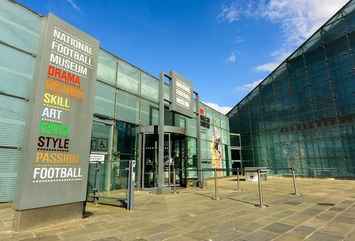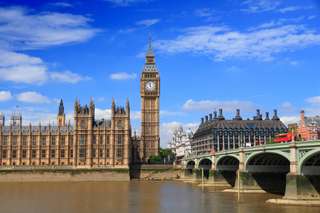


England
Europe
/
England
England, a captivating destination steeped in history and culture, beckons travelers from around the globe. This green and pleasant land, immortalized in William Shakespeare's works, boasts an array of iconic landmarks, from the majestic Buckingham Palace to the mysterious Stonehenge. Visitors can explore charming villages, bustling cities, and picturesque countryside, all while indulging in traditional afternoon tea and savoring hearty pub fare.
From the cosmopolitan streets of London to the rolling hills of the Cotswolds, England offers a diverse tapestry of experiences. History buffs can delve into the country's rich past at the British Museum or wander through the hallowed halls of Oxford University. Nature enthusiasts will find solace in the Lake District's serene beauty, while literature lovers can retrace the footsteps of Jane Austen in Bath. With its blend of ancient traditions and modern innovations, England promises an unforgettable journey for every traveler.

Get to Know England
Take a tour of this destination's highlights
Top Sights in England
Inspiring Reads on England

Travel Tips for England
What you need to know before traveling here
Practical Tips for England
Things to prepare and best way to visit
The best time to visit England is typically between March and June or September to November when the weather is mild and crowds are smaller. Summer (July and August) offers warmer temperatures but can be crowded and more expensive. Winter (December to February) can be cold and wet, but it's ideal for experiencing festive markets and cozy pubs. Spring brings beautiful blooms, while autumn showcases stunning foliage. Ultimately, the best time depends on your preferences and planned activities.
Whether you need a visa to visit England depends on your nationality and the purpose of your visit. Citizens of many countries, including the United States, Canada, Australia, and EU nations, can typically enter England for tourism or short business trips without a visa for up to six months. However, it's essential to check the latest visa requirements on the official UK government website before traveling, as regulations can change. If you plan to study, work, or stay longer than six months, you may need to apply for a specific visa.
England offers numerous iconic attractions for visitors. In London, don't miss the Tower of London, Buckingham Palace, Big Ben, and the British Museum. Outside the capital, popular sites include Stonehenge, the Roman Baths in Bath, the university cities of Oxford and Cambridge, and the picturesque Lake District. For history buffs, Windsor Castle and Warwick Castle are excellent choices. Nature lovers should explore the Cotswolds or the Cornwall coast. Football fans might want to catch a Premier League match, while literature enthusiasts can visit Shakespeare's birthplace in Stratford-upon-Avon.
Public transportation in England is generally efficient and extensive. In London, the Underground (Tube) and bus network are the primary modes of transport. Purchase an Oyster card or use contactless payment for convenient travel. For intercity travel, trains are fast and frequent, but booking in advance can save money. Coaches (long-distance buses) offer a more budget-friendly option. In smaller towns and rural areas, local buses are common. Many cities also have bike-sharing schemes. When planning your journey, use apps like Citymapper or the National Rail website for real-time information and route planning.
Tipping in England is appreciated but not as obligatory as in some countries. In restaurants, a service charge of 10-15% is often added to the bill; if not, a tip of 10-15% is customary for good service. In pubs, tipping is not expected when ordering drinks at the bar, but you might round up the bill or leave some change if table service is provided. For taxis, rounding up the fare or adding 10% for longer journeys is common. Hotel porters typically receive £1-2 per bag. In general, tipping is more common in upscale establishments and less so in casual settings.
See All Practical Tips for England

Explore England
Create your itinerary with our top picks below
Set off your journey to England
Plan smart & save big! Use discount code BISAYUK only for you

Flights

Hotels

Xperience

Get to Know England

Travel Tips for England

Explore England
More Destination Near England



































































 Facebook
Facebook Instagram
Instagram TikTok
TikTok Youtube
Youtube Telegram
Telegram
